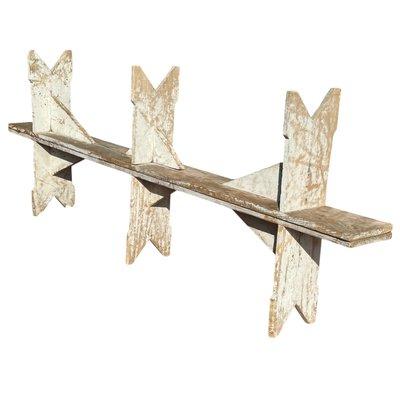Introduction
As Bordeaux’s storied vineyards grapple with a series of challenges, the imposition of tariffs by the Trump administration has emerged as a significant threat to the region’s winemaking industry. Once celebrated for its finesse and flavor, Bordeaux now finds itself navigating the complexities of international trade disputes, alongside the impacts of climate change and shifting consumer preferences. Winemakers, already facing economic pressures, are increasingly concerned that the new tariffs could exacerbate their struggles, leading to diminished sales and potential layoffs. This article delves into how these economic headwinds are reshaping the landscape for Bordeaux’s famed producers, as they seek to adapt and survive in an increasingly hostile market.
Impact of Trump Tariffs on Bordeaux’s Wine Exports
The imposition of tariffs by the Trump administration has significantly altered the landscape for Bordeaux wine exporters, creating an uphill battle for many traditional winemakers. The new duties, which can reach as high as 25%, have led to a sharp decline in exports to the United States, a crucial market for these renowned French wines. As a result, many estates are facing dwindling sales and forced to reassess their pricing strategies. The financial strain on producers has been palpable, compelling smaller vineyards to consider alternative markets or to seek innovative ways to maintain their foothold in the industry.
While the tariffs have adversely affected sales, there are ongoing discussions among winemakers about adapting to these new challenges. Some are exploring options such as:
- Diversifying export markets to reduce reliance on the U.S.
- Innovating their product offerings to cater to emerging consumer preferences.
- Strengthening domestic sales to buffer against international market fluctuations.
As Bordeaux producers navigate this turbulent period, the future of their exports remains uncertain. The impact of these tariffs is not just a simple economic issue; it intertwines with cultural heritage, as the region’s rich legacy of winemaking faces unprecedented disruption.
Challenges Faced by Winemakers Amidst Economic Turmoil
The ongoing economic turmoil has placed additional strains on winemakers in Bordeaux, particularly with the introduction of tariffs by the U.S. government, which have created a volatile environment for exports. This new layer of complexity comes against a backdrop of various challenges that the industry is already grappling with. The adverse effects are not confined to the financial realm; they extend to the operational aspects of winemaking and distribution. Key hurdles include:
- Increased Production Costs: Rising prices for raw materials, coupled with labor shortages, have led to heightened operational expenses.
- Market Disruption: Shifts in consumer demand and difficulty in accessing traditional markets have forced vintners to rethink their strategies.
- Climate Change Impacts: Unpredictable weather patterns pose risks to grape quality and harvest yields.
With these developments, many Bordeaux producers are reevaluating their approach to international sales and marketing. The table below highlights the potential impacts of the tariffs on specific wine categories, underscoring how deeply intertwined economic factors are with the sustainability of this storied wine region.
| Wine Category | Estimated Impact (USD Million) |
|---|---|
| Red Wines | 100 |
| White Wines | 75 |
| Champagnes | 50 |
Strategies for Resilience in the Bordeaux Wine Industry
The Bordeaux wine industry faces unprecedented challenges, not solely from economic pressures but also shifts in global trade dynamics. To combat the impact of tariffs, producers are increasingly adopting innovative strategies that prioritize sustainability and diversification. This includes fostering direct-to-consumer sales through local wine clubs and e-commerce platforms, effectively bypassing traditional distribution channels that can exacerbate the financial burden of tariffs. Additionally, collaborations with regional tourism boards have emerged, allowing wineries to develop immersive experiences that attract both domestic and international visitors.
Moreover, the implementation of advanced agricultural practices plays a pivotal role in enhancing resilience. By investing in climate-adaptive techniques such as drought-resistant grape varieties and precision irrigation systems, wineries can mitigate the adverse effects of climate change, which is further complicated by economic factors. The Bordeaux region is also focusing on establishing strong export networks in emerging markets, which could reduce reliance on traditional markets affected by tariffs. With these initiatives, Bordeaux winemakers are not merely surviving; they are positioning themselves strategically for future success.
Future Outlook: Navigating Uncertainty in Global Markets
The challenges facing Bordeaux winemakers are intensifying as they grapple with the implications of the recent tariffs imposed by the Trump administration. These tariffs not only threaten to disrupt established trade relationships but also expose local producers to heightened competition from international markets. Among the key factors contributing to this precarious situation are:
- Economic Instability: Fluctuations in currency and trade agreements aggravate market unpredictability.
- Changing Consumer Preferences: A shift towards more diverse wine regions offers consumers alternatives, potentially eroding Bordeaux’s market share.
- Climate Change: With unpredictable weather patterns affecting grape yields, winemakers must innovate continually to maintain quality.
As Bordeaux navigates these turbulent waters, producers are adopting varying strategies to mitigate risks. Some are enhancing their focus on sustainable practices while others are exploring emerging markets in Asia and South America. A snapshot of potential adaptation strategies includes:
| Strategy | Expected Benefit |
|---|---|
| Direct-to-Consumer Sales | Increased profit margins and customer loyalty. |
| Diverse Portfolio Development | Reduced dependency on specific regions or styles. |
| Exporting to Non-Traditional Markets | Access to new customer bases and reduced tariff impact. |
Ultimately, the resilience of Bordeaux’s wine industry will hinge on its adaptability in the face of global uncertainties. By embracing innovation and diversifying their approaches, these winemakers can navigate the evolving landscape and strive for recovery against the backdrop of geopolitical challenges.
Closing Remarks
In conclusion, the ongoing struggle of Bordeaux winemakers against the backdrop of new tariffs imposed by the Trump administration highlights the complexities of international trade and its impact on local industries. As the region grapples with diminishing exports and increasing production costs, the resilience of its vintners will be tested further. With a rich heritage on the line, these producers are not just fighting for their livelihoods, but also for the preservation of a cultural legacy that has defined the Bordeaux region for centuries. As the global wine market evolves, stakeholders will need to adapt and innovate to overcome these challenges and safeguard their future. The coming months will be crucial for Bordeaux, as winemakers seek both to navigate their immediate difficulties and to advocate for policies that will support their recovery in the long term.




